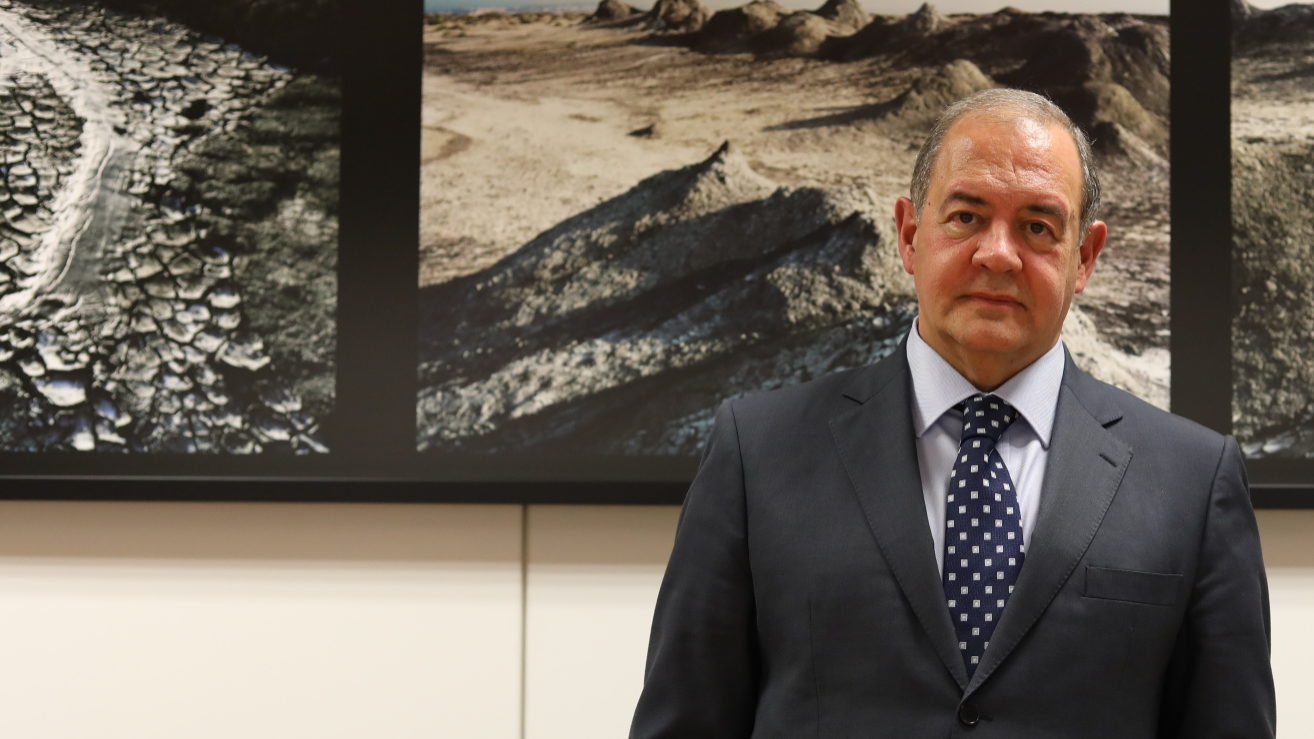Horta Osório: “The new CGD administration must assure past mistakes are not repeated”
António Horta Osório states the CGD needs stability and that Paulo Macedo has every means to avoid past mistakes. He is CEO of Lloyds which has received, once again, the UK Bank of the Year award.
Caixa Geral de Depósitos (CGD) already has a designated CEO, Paulo Macedo, but not yet a new administration team. “CGD needs stability in order to carry out its works; I believe too much time has been wasted”, states António Horta Osório to ECO, on the day Lloyds, the bank in which he is CEO, was elected UK Bank of the Year for the fourth consecutive year by the magazine The Banker.
In his first statements concerning CGD’s dossier, exclusively to ECO, Horta Osório defines what he believes should be Paulo Macedo’s priority: “Because of the recapitalization plan already approved [by Brussels], the new CGD administration has the responsibility and the means to assure that past mistakes are not repeated”, answers the Portuguese banker that turned Lloyds around in five years.
António Horta Osório knows what he is talking about when he is assessing the demands a banker has to comply with when managing public capital. The English state injected 20 billion pounds in Lloyds and held 43% equity. And how is the bank today? We’ll get to that. But firstly: the CGD.
Horta Osório told ECO the new CGD administration must assure “public capital, meaning taxpayers’ money, will not be again necessary to solve these types of issues”. According to the recapitalization plan already negotiated, the CGD will receive over five billion euros, from which one billion will come from issuing bonds from private investors. The transfer from the State Budget will be of 2.7 billion euros, to which are added 960 million euros worth of CoCo bonds (contingent convertibles) into equity and 500 million euros in shares transferred from ParCaixa (holding company of the CGD Group). All this is to be executed in 2017, the government assures, after the impairments are registered in the accounts of 2016 – which will surpass two billion euros.
What priorities should the new CGD management have?
- CGD has many challenges ahead, as it is known. It is essential to go forward with both the business and recapitalization plans already approved in order for the public bank to be able to comply with its mission, which is to help the economic growth and to finance SMEs, of key importance for creating employment and exports – helping, therefore, the country’s growth.
António Hora Osório is very careful when discussing CGD. He is speaking from London and, therefore, although he closely follows the Portuguese reality, does not want to say more than he needs to. Concerning the work he carried out in Lloyds, that’s another story:
“The British Treasury decision to resume the sale of their equity participation in Lloyds reflects the hard work that has been developed throughout the past five years to turning the Group into a simple, low-risk bank, focused on its clients and committed to helping the British economy prosper”, Horta Osório told ECO. At first blush, it seems he is discussing what the CGD should do in Portugal.
António Horta Osório recalls that, in 2009, the English government acquired 43% equity of Lloyds for 20 billion pounds. “That holding is now of around 7.5% and 17 billion pounds were returned to British taxpayers, including the dividends paid to the British Treasury”.
We should recall that Lloyds paid dividends again in 2014, for the first time since 2008. In total, over two billion pounds in dividends have already been paid for. “With Lloyds having returned to the private sector, taxpayers are receiving their money back with profit, as I promised when I took office”, he states.
The British state already has, therefore, a minority position in Lloyds’ capital, but the bank Horta Osório leads is not so different from what he advocates for CGD. “Lloyds has been growing and it will continue to grow in areas such as SMEs, consumer credit and digital banking; we are the largest digital bank in the United Kingdom with over 12 million ‘digital’ clients and a total of 25 million clients, out of which 7.8 million are active mobile clients. We continue to pursue our goal of helping the British economy and that can be seen in credit growth to SMEs – of 28% over the past five years – which has helped over 94 thousand new businesses and startups in the first six months of this year alone”.
Brexit is on the march, although slowly. What does it mean for United Kingdom’s economy and for the financial system – and particularly, to Lloyds?
- The consequences of Brexit and the impact they’ll have on the overall economy are still unclear. Therefore, it is very important for banks and companies to be prepared to react in case difficulties arise. In the first nine months of this year, Lloyds increased their profits before taxes in 52%, to 3.3 billion pounds.
Besides this, the bank had the best results out of the many English banks tested for stress, meaning it holds a privileged position when dealing with potential challenges. This year, the scenario considered by the Bank of England was stricter than in 2015, but the Group easily surpassed the higher threshold, reaffirming its strong capital and balance.
And how does the Portuguese manager with worldwide prestige perceive the Portuguese economy? Horta Osório names three priorities:
- Implementing structural reforms that lead to a reduction in the country’s indebtedness – which is still high –, in order to assure the country grows more and does not have to relive a crisis as deep as the recent one;
- Simultaneously, it is essential to invest in education as a way to increase competitiveness that, in turn, will increase the living standard of the Portuguese citizens;
- Finally, it is imperative to invest in training and preparing the country for the Digital Revolution, which is a global reality; it is changing the skills workers need, which requires planning the future not only for the younger generation, but also to those who are currently doing jobs which will be made redundant or even disappear.




